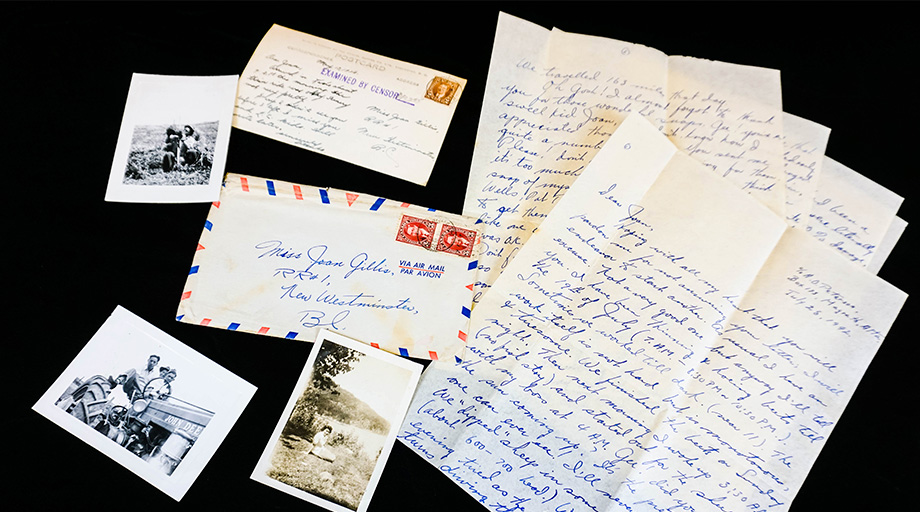
UBC Library’s Joan Gillis Fonds has been added to the Canadian Commission for UNESCO’s Canada Memory of the World Register in recognition of its historical value.
Showcasing the most significant documents of our heritage, UNESCO’s Memory of the World program is an international initiative launched to safeguard the documentary heritage of humanity against collective amnesia, neglect, the ravages of time and climatic conditions, and wilful and deliberate destruction. It calls for the preservation of valuable archival holdings, library collections and private individual compendia all over the world for posterity, the reconstitution of dispersed or displaced documentary heritage, and the increased accessibility to and dissemination of these items. The Canada Memory of the World Register highlights exceptional works and documents that reflect the wealth and diversity of Canada’s documentary heritage.
In being added to the Canadian register, the Joan Gillis Fonds joins a short list of Canadian works and documentary collections including UBC Library’s Wallace B. Chung and Madeline H. Chung Collection that was awarded the designation in 2019.
The Joan Gillis fonds, selections from which can now be explored online through I Know We’ll Meet Again, a digital exhibit featuring photographs and letters from the collection, consists of the incoming correspondence to Joan Gillis from a group of young Japanese Canadians she met while attending Queen Elizabeth Secondary School in Surrey. The fonds includes 149 letters and 10 small photographs sent from a total of 13 different correspondents. The majority of the correspondence took place during 1942 to 1946, with different friends writing from farms and work camps in British Columbia, Manitoba, and Alberta. The letters provide insight into the Japanese Canadian internment, which occurred against the backdrop of a larger cultural context. Since the early 1900s Japanese immigrants and persons of Japanese descent living in Canada were subject to racially targeted legislation, including limits on immigration, limits on fishing licenses, and being denied the right to vote based on racial status.
The letter-writers discuss their day-to-day life at the work camps and farms living and working conditions, their new schools and teachers, and ask after Gillis’ life in Surrey and the on-goings at Queen Elizabeth (Q.E.) secondary school.
“In 2018, Joan Parolin (nee Gillis) donated 149 letters to the UBC Library. These letters are ones she received from Japanese Canadian teenage friends after they and their families were forcibly dispersed from the coast during the second world war. Ms. Gillis kept the letters safe a lifetime, before entrusting their care to the university,” says Krisztina Laszlo, Archivist at UBC Library Rare Books and Special Collections. “The letters capacity to help understand the lived experience of the writers, and the impact of events on their lives is immeasurable. The letters demonstrate the profound impact of policies based on racism, and provide insight into how youth navigated and responded to these changes. The designation of the letters into Canada’s Memory of the World register will ensure their story is never forgotten.”
“I am thrilled that this designation recognizes a special collection of correspondence, which sheds new light on an important event in Canadian history – the forced relocation and internment of Japanese Canadian people during the Second World War,” says Dr. Laura Ishiguro, Associate Professor in Department of History at UBC. “These letters offer unique insights into how a group of young Japanese Canadian people navigated circumstances they had not chosen and sought to make sense of their changing everyday lives through a long-distance friendship. Their letters survive today as testimony to the power of their creativity, humour, diversity, and vitality in a challenging time that changed their community, and their country, forever.”
Read the announcement from the Canadian Commission for UNESCO.
Further reading and resources
Watch the online panel discussion about the fonds, hosted by UBC Asian Library and the Asian Canadian and Asian Migration Studies program (ACAM) on March 1, 2022.